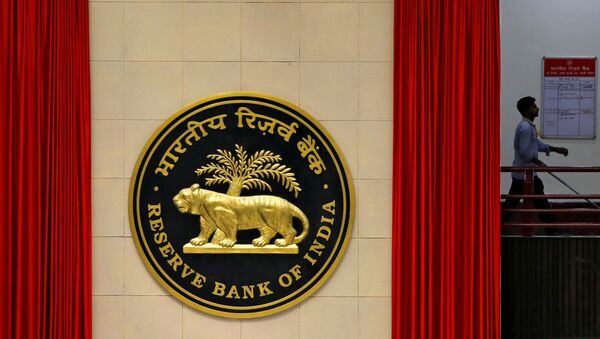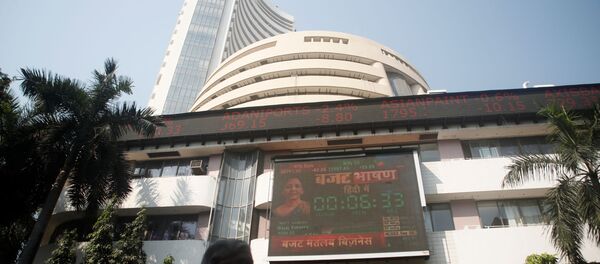The novel coronavirus has taken a toll on Indian equities as well as currency: with the total number of confirmed cases touching 28, as per the Indian Health Ministry, and the country's financial markets showing nervousness with the bourses and currency falling on Wednesday, all eyes are on India’s apex bank.
People are curious whether the Reserve Bank of India (RBI) will also undertake emergency rate cuts like the US Federal Reserve to helm the tumbling markets. Even though expectations are rife, experts argue that the RBI does not need to “cut rates immediately” to soothe the markets.
In an emergency decision on Tuesday, the US Federal Reserve reduced the interest rates by half a percentage point almost two weeks before the scheduled policy meeting to insulate its economy from the impact of the coronavirus.
Ever since then, Indian market participants are expecting a similar move by the RBI, which kept the key policy rate unchanged in its last monetary policy committee meeting on 5 February.
Analysts, however, emphasise that the time is not ripe yet to push the panic button on interest rates to shield the Indian economy against the impact of the coronavirus, despite the fact that Indian bourses crashed and that the currency has been trading at weak levels against the US dollar on Wednesday.
The Bombay Stock Exchange’s 30-share index Sensex fell 214 points on Wednesday and the rupee closed at 73.19 against the US dollar.
“RBI need not cut rates immediately. As of now, there is adequate liquidity in the system. Steps may be taken for certain sectors like exports that are currently facing problems. Realisation may not happen for the exporters, which may impact payback to the banks. For other sectors too, sectoral measures may be taken”, former RBI Deputy Governor H. R. Khan told Sputnik.
Khan also pointed to the fact that the RBI, while announcing the decision of the Monetary Policy Committee on 5 February, had even announced measures to enhance liquidity in the system. Even as the Repo rate – the rate at which the central bank gives money to other banks – was kept unchanged, the RBI relaxed the flow of funds to retail and micro as well as small and medium enterprises. This, Khan believes, will provide a much-needed cushion against the turmoil in the financial markets, at least for the time being.
Another former top-level official at the RBI told Sputnik on condition of anonymity, “It is a different situation in India. We need to focus on preventing the spread of the disease”.
According to data from the National Stock Exchange, foreign institutional investors (FIIs) have withdrawn a total of about $1.5 billion from the Indian markets in the last week. Between 24 and 28 February, heavy selling was seen by the FIIs. On 24 February, FIIs sold Indian stocks worth $163.5 million, which almost trebled to $470 million on 26 February.
Market participants also do not see a reason to panic.
“There is not much of downside risk for the Indian equities at least in the near term due to coronavirus. However, some relief may be required by the specific industries due the outbreak and the government should take steps for them. For example, banks may be directed not to recognise non-payment of loans or interest due to coronavirus as non-performing assets. The affected industry needs to be insulated from liabilities like loan and interest", market expert Vivek Mittal said.
In India, the industries that are affected due to the outbreak of coronavirus are pharma, automobile, and mobile handset manufacturing, among others. The government has already imposed restrictions on the export of Active Pharmaceutical Ingredients – the basic building block of a drug to ensure a steady supply for the domestic market. India imports almost 70 percent of APIs from China. Pharma industry sources have said that API stocks will last till April.
Meanwhile, the RBI on Tuesday said it is closely monitoring both the global as well as domestic markets. In a statement, the apex bank said, "The Reserve Bank of India is monitoring global and domestic developments closely and continuously and stands ready to take appropriate actions to ensure orderly functioning of financial markets, maintain market confidence and preserve financial stability".




